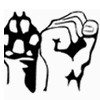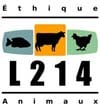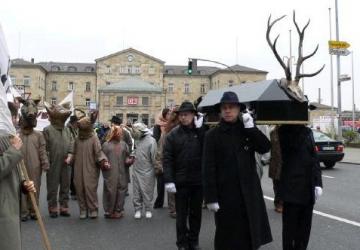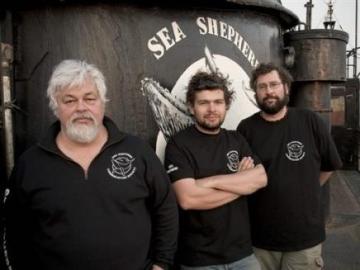“…I would ask people to believe what underpins me is love and compassion. That may drive me to do things that other people disagree with. I want a gentler world, not a more violent world.”
John Curtin, On Vivisection, Channel 4
***
Abolitionist: What do you see as your role in the movement?
John Curtin: Very interesting because everything is in the process of changing in the universe, including me. I’ve been involved with the AR movement for over 20 years and throughout that time I’ve done so many things to do with animal liberation. I’ve done a lot of things based around direct action, whether that’s illegal direct action or actually doing it, or speaking about it, or writing about it, or giving school talks about it, or talking to the media about it.
The reason I do this is to take away some of this monstrous propaganda that surrounds direct action - it’s to show that direct action is possible and by breaking into laboratories and releasing animals does not require the activist to be full of hatred. I’m very proud to belong to the animal liberation movement. Whether it’s liked or not, the illegal direct action side has been the cutting edge of the animal liberation movement as a whole.
Abolitionist: So as an Irishman who went to live in London during Thatcher’s rein in the early 80’s and this was when it all began for you?
John Curtin: Yeah. My first girlfriend was a vegetarian and to me at that time vegetarianism was a complete mystery. My idea to go on a romantic date was to go to the Wimpy bar and have a burger and she’d have a tomato soup. I never thought in a million years I’d go vegetarian. Then I went back to Ireland and I had a beautiful dog, Pepe la Pew. He got some weird disease like a virus. He just went downhill and downhill. In the space of about 2 days he died. We went through his death together. He died in my arms.
This event was a road to Damascus. At that moment I really understood that animals really do matter. Something clicked inside of me. Until then I had been brought up in a typical Irish family with very Catholic values. Although I wasn’t a practicing Catholic I think psychologically I still carried with me this belief that only humans really mattered and we were the only ones that feel pain. We’re the only one’s that have a soul. At that stage of my life, I liked animals, but it was more in a Walt Disney affectionate kind of way. I really didn’t give them much thought past that.
After my dog died in my arms I was crying my eyes out all day and night – it really became obvious to me that my mission was to help animals. Some of the things that fuelled me during this period of my life was the shame with myself for having been so stupid to believe all the lies that society had tried to ram down my throat. Non-human animals have mattered to me ever since. Part of that realisation for me was the fact that humans are just animals and people hate being reminded that we are just animals ourselves.
“I will never compromise when it comes to torture. I will never accept one single animal experiment. Millions of animals are tortured inside British laboratories and the fight will not stop until there is none.”
- John Curtin, On Vivisection.Channel 4.
Abolitionist: The late Henry Spira said that when the modern-day animal rights movement first began back in the seventies, it felt as if you were joining the priesthood and taking Holy Orders. Even now, people working in our movement, from all walks of life, say they are prepared to risk everything if it will push the animal rights movement along. The point is: Do you think people from the outside, looking in, realise how far animal rights/liberation people are willing to sacrifice for the animals. I mean it’s not just a passion or a commitment, it’s more like a crusade. Isn’t that what you’re saying?
John Curtin: Basically you get a vision which totally shatters your world-view and gives you another world-view but this time it’s a brilliant world-view. It makes you part of a community, you’re then part of a family of other beings rather than an isolated super-being which society tries to tell you you are. No longer are animals beneath you anymore. You then are a part of this [phenomenon] and it’s called a ‘Revolution’.
“To me it is the vivisectors who are the terrorists. Martin Luther King, Gandhi and Mandela were all branded by society as terrorists by simply fighting for justice and standing up for the victims of bullying. Apart from one attack, that I know of, on Brian Cass, no vivisectors have actually been physically injured, yet 3 animal rights protestors who have been killed and countless put in hospital.”
John Curtin, OnVivisection, Channel 4.
Abolitionist: What would you say to activists who are working in the movement and are beginning to get over-whelmed by it all?
John Curtin: It’s very easy to get over-whelmed. As I used to walk down a High Street and be assaulted by the sights of consumerism in all it's vulgarity, let alone be faced by some act of mass cruelty such as going inside a battery farm, I used to think to myself "My God, What the hell has happened here?” I used to really have it in for the human race. I really wasn’t too impressed at all with anything to do with human beings but then I started to look into it.
For me, it’s very interesting to study history. If you do this then it’s important to realise that the only one’s who wrote anything were the one’s holding the power although slithers of truth are still there. It appears to me that the biggest things that drive you mad in life like the industrialisation of cruelty, governments and warfare, the whole property thing – a lot of it relates to the whole Bible agenda. To me human beings are animals and we belong on this planet. I don’t think we are from some supernatural story or some other planet. We are animals and we have gone totally astray.
If you look at our history – when human beings were in Africa - we haven’t left any traces of desolation behind us. Desolation began with the whole farming agenda. That’s not to say I’m against farming – I mean we have to have food. I just want to know my history and farming has produced every screwed up thing that I can possibly think of. For the first time in the history of the planet people began to settle down in one place and the ramifications off that have been disastrous.
Then there’s the whole thing about population explosion. More food equals more people, but more people need more food, and then more food generates more people. The important point of looking into this history is not to try and turn the clocks back but just to realise that things haven’t always been crazy and that if somethings got a start, it’s also got an end. I was astonished when I found out that animal farming is not an ingrained part of the human psyche – in fact it is only 6,000 years old – check it out for yourself.
To me this craziness is like the Roman Empire – it can’t sustain itself. Sometimes within animal rights there’s a strain of thought that thinks the human being is unique – uniquely awful and evil and absolutely terrible. This is very similar to the same argument that religion uses that the human being is so fantastic and unique. To me we’re just a little blip. Okay, yeah we might be causing devastation to our habitat and we’re doing despicable things to animals and to each other. We seem to have adopted that route (the destructive side of us) and fortunately, as anyone from an indigenous tribe will tell you, that cannot sustain itself. The Roman Empire had within it the seeds of its own destruction, as do we with our modern craziness.
Abolitionist: What’s the answer?
John Curtin: Well one thing you can do which is passive is to just sit there, twiddle your thumbs and play violin and wait for it to implode…which I’m not going to do because even if you accept it is a disaster, on an enormous scale, then you can still DO SOMETHING.
Take the worse case example. Say you’re in your house and there’s a fire. There’s a route of escape. You have the option to jump out of the window, which you do because the fire is threatening to engulf you. You have saved your life but you can hear the screams of your family while you’re outside. You are faced with a dilemma. Either sit on the pavement and just collapse and listen to the screams or - you can ring the fire brigade, but it’s far too late for that.
There’s the other option of trying to get back in there and even if you save one other person, your sister, or budgie or granny, at least you did something. That’s how I tend to see it. We might not be able to rescue everyone but we can rescue some. I do not think it is possible to stop humans from committing acts of cruelty but I do see a day when the large industrialised forms of cruelty such as vivisection and factory farming will be stopped.
Abolitionist: So what you’re saying is passivity in the face of everything that we’re facing in life is the enemy. It’s better to do something than to do nothing. Is that it?
John Curtin: Yeah for sure.
“There is a saying that animals have as much chance in politics as they have in the slaughterhouse. I have here a leaflet that was put through my door by Labour saying, ‘New Labour – New Life’ where Tony Blair promised to have a Royal Commission into vivisection…Where is that now? Another empty promise. We target businesses because the fundamental reason behind animal experiments is to make money, therefore business-people understand us when we cost them money”.
– John Curtin, On Vivisection.Channel 4.
Abolitionist: How has the movement progressed since the days that you were a member of the Hunt Retribution Squad, John?
John Curtin: When I joined the movement in the early 80’s I was lucky because I joined it in one of it’s most obviously vibrant phases. The movement is still in its infancy now but back then it really was just setting off. Back then it was just so easy to join and get stuck straight in at the deep end. You were joining a roller coaster that was already on the go. You just went along with the flow. All these vibrant people had joined with all this good energy and full of ideas and once you joined it it was like “Yeah! I’ll have some of this”.
To some degree that was our honeymoon phase because the media weren’t too awful against us, the police hadn’t woken up to us yet, animal abusers were in shock and they didn’t have any defense against us. Things have got a lot harder now. As far as the legal side of it goes, or rather the “illegal” side of it goes, my god, there’s just been one new obstacle after another – such as the introduction of CCTV and DNA technology – but where there’s a will there is a way and these things are just obstacles and obstacles can be overcome.
You have to be so much more careful now if you break the law. But that’s just one thing. They’ve used all the propaganda against us. They’ve always done this. In the early days there was a sense of Robin Hood style about us. We were the goodies and the vivisectors and animal abusers were the baddies. Now it’s very much, we’re just the baddies, baddies, baddies. We’re the terrorists. We’re the idiots. We’re the social cripples. We’re the anti-social lunatics.
Abolitionist: Do you think the propaganda is working?
John Curtin: It’s bound to have its effect. The propaganda has worked to a degree. Propaganda doesn’t effect people who are already in the movement but if you’re not already in the movement, that’s the time that propaganda seems to work. It’s harder to get people involved these days than it was then. Especially over the past few years in the animal liberation movement, we can be guilty of using propaganda ourselves sometimes. We always want to say we’re bigger, faster, stronger than ever but to me I think it is a very interesting time at the moment.
“If I thought that debating on its own would end vivisection then I would devote myself fully to that but action is needed to end it as well as debating. I am too interested in preventing human suffering and saving human lives but my circle goes to all creatures. The world will always be full of suffering but my dream is to live in one where deliberate suffering is condemned”.
John Curtin, On Vivisection, Channel 4.
Abolitionist: Not so long ago the High Court stripped London Animal Action of all its assets. Was that was something new?
John Curtin: Yeah. My memories of court used to be a barrister used to stand up and be saying to the judge, “He’s a terrorist and a thug and a burglar and all the rest of it”. We’re not talking about someone who goes out and demonstrates with a loud speaker or banner. That’s a proud tradition that we have kept dear to our hearts in England. Now you get arrested on a demonstration. You get treated like a criminal. Demonstrations themselves over here now are seen as radical. Now the police are involved all of the time with demonstrations. The police themselves wear balaclavas now. To get out of your car and be surrounded by police who are sticking cameras in your face, to us that’s normal, but if you have never been involved with demonstrations before, that can be really intimidating.
“If the pharmaceuticals cared about people how do they still try and charge the earth for their drugs in the developing world? They can make money from selling dangerous products as long as they are on the market for long enough. E.g., Vioxx”.
John Curtin, On Vivisection, Channel 4.
Abolitionist: Will Huntingdon shut down?
John Curtin: Yeah. Of course it will.
Abolitionist: What is it in the English psyche that is prepared to make great sacrifices for animals?
John Curtin: You say that but I was looking on the Bite Back website last night and the animal liberation movement is a movement - there’s a clue there in the word ‘movement’. The focus point definitely used to be Britain but I couldn’t be more inspired with what I saw on the Bite Back website. I was literally jumping up and down with such joy with some of the countries {doing actions} that I was seeing. Russia, Argentina- it’s fantastic. Even France because it’s always kind of been left out of things and hasn’t really had a active animal liberation movement but I saw there were a couple of things there. France has always been a hard place to crack.
If you look back in history people in England historically cared for animals but also there are links with the movement to abolish slavery and child labor and the fight for women’s liberation. It was a Victorian ideal. They had an image that part of the reason to encompass animals into their circle of compassion was to make society just a softer place to live in. They thought if they could make society think about animals then how much easier will it be to think about each other. It was anthropomorphic – a humanocentric idea to bring animals into it. E.g., London used to be – it still is – a very violent place and there was lots of brutality publicly out in the streets, especially animal cruelty.
Part of the idea was let’s remove some of this brutality which included at the time beating horses. From that an animal welfare movement grew in England so historically there’s a reason why there’s been an animal-centred philosophy happening in England and why the conditions were ripe for the animal liberation movement to emerge from here. To me the real homeland of compassion to animals is India – but I mean that in a historical context
“The problem is all drugs are tested on animals…Thalidomide is the classic case in question where they are caught out for being what they are – indefensible. It WAS tested for birth defects on animals. Being the clever business people that they are they managed to turn the argument into “ah ha we need MORE animal testing”. Thalidomide should have been the last animal testing of all time”.
John Curtin, On Vivisection, Channel 4.
Abolitionist: On Boxing Day the hunters went out in defiance of the law and went foxhunting. Is that right?
John Curtin: It’s really bad actually but it shows you what the System is really like. People must understand that the hunt is about much more than animal cruelty. That’s the main spectacle within it but it goes way beyond that. The hunt used to be the Establishment. They were exactly the same thing. If you were a part of the Establishment, then you were also part of the Hunt.
Now the power situation is changing in the world with capitalism and global businesses are coming to the fore – but somehow the old British establishment lost a lot of it’s power. They cannot believe it – they are still in shock to this day – that hunting has been made illegal. It shows you the power that they have got that it’s not just on Boxing Day. The hunts now in England are just routinely going out every-day now and breaking the law. They’ve been given the green light to do so by the police but I can’t think of any other situation like it in Britain where a small group of people are openly and flagrantly breaking a criminal law.
With my anarchist thinking, it’s remarkable that there’s one law for them and another law for the rest of us. The police announced that they weren’t going to police it and I think the police have now began to realise that they have made a mistake. When it comes to the law and you stand before a judge, it doesn’t matter if it’s parking ticket or if it’s a rape. The thing to that judge is that you have broken the law- it’s sacrosanct. It’s always been dangerous to go hunt-sabbing. This year has been more dangerous than any other year {on record} so much so that people are getting beat up. The hunt is actually more dangerous than ever now.
Abolitionist: It was Mike Hill that was killed while sabbing, wasn’t it?
John Curtin: There were 2 people killed. Mike Hill, a friend of mine and a really nice guy- beautiful guy. He was a lovely, lovely guy. And a chap called Tom Worby, another young lad. That was Tom’s first time out. He was only a sixteen year old kid
When someone dies people say “He was such a luvly man” but Mike Hill was just so sound. He was only young – eighteen when he was killed – but he had so much youth and dynamism of a young person. He was a compassionate sensible person who worked at animal sanctuaries and spent all his day cleaning up dog shit and cleaning out kennels. He was a hard-worker. He was into punk and all the rest of it. I remember when he died I went into his caravan.
There were all these “Fuck the police” posters surrounding the caravan and the band the Crash was on his turntable. That’s always just stuck in my mind. He always used to help me with fundraising because at that time I was doing quite a few animal liberation raids. Everytime I saw him he would hand me a big bag of money he’d collected off stalls to help towards things.
Abolitionist: You knew Jill Phipps as well…
John Curtin: I knew Jill very well. Jill was one of my best mates. Jill was a gorgeous, gorgeous pleasure to be with. I used to love popping around there and seeing her. I made a film this year about Jill. It’s a really popular film. I’ve been spending all year travelling around England and some places in Europe showing it. It shows Jill’s life from when she was a young kid, loads of home movie footage. It’s the story of her life rather than just the animal liberation story. (see our review of John’s doco)
Abolitionist: And how’s Nancy coping with everything?
John Curtin: Nancy’s coping very badly, still. Anyone who reads this as a parent who’s lost a child would understand that. Death is part of life. I’ve had close family members of mine die, my Mum for example. It’s tragic at the time but life goes on. Something allows you to get over it – some natural defense mechanism I suppose. You have to go through the grieving then move on. Maybe if you lose a child you don’t move on. Jill’s death fuelled Nancy’s anger like you would not believe. Nancy is the epitome of the animal liberation fight. Nancy is so stoic. She never gives in. Basically, I wouldn’t want Nancy as my enemy.
Abolitionist: What type of man was Barry because everything I read about him describes him as ‘difficult’ but nobody defines that term.
John Curtin: That’s what I’d say as well. He was difficult. When I think of Mike Hill and Jill I think of sitting down and having a nice time with them and doing something crazy with them. When I think of Barry I think of arguing with him. Barry slamming the door at me. Him being obnoxious. Grumpy. Awkward. When he was on his hunger strike he asked me to speak at his funeral and when I heard that I thought “You bastard!” It was like a practical joke because I wouldn’t be able to say, “You know Barry was such a lovely man”.
Abolitionist: What did you argue about?
John Curtin: Everything.
Abolitionist: But what precisely?
John Curtin: Everything not only animal rights subjects. He was just a unique character. He wasn’t nasty he was just ‘Barry’. He wasn’t always an easy person to be around but I don’t want to paint a dark picture of him because I also had lots of really good laughs and adventures with him.
Abolitionist: 18 years incarceration is the longest jail term anybody has been given for animal rights activities…
John Curtin. That was a stunning thing to happen. I was in court when he got sentenced and I remember the prosecution barrister standing up and saying they accepted that Barry only ever intended to damage property and no lives were intentionally put at risk etc. I remember thinking at that point, “They’ll give him 8 or 9 years” and then when the judge came out with 18 years – only al Qaeda or the IRA get sentences that long. Very occasionally if you get caught with 50 tonnes of heroin or cocaine you might get that long.
The man that was responsible for Jill’s death is serving 20 years in prison. When he came up with the idea of exporting calves from Coventry, he was drug dealing then. One of the reasons he got into exporting live calves was as a front for drug dealing. That man, Mr Christopher Barrett Jolly, is now serving 20 years in prison for cocaine smuggling. Whenever I think about it, it makes me smile.
I never like to think about people in prison but when it comes to Jolly he was such a shit. We knew he was an arms dealer and drug dealer already. We told the police that. Every day he got a police escort in and out of the airport. It took us about 3 months after Jill’s death to finish it {the live export industry} and a few years later he was arrested at Southend Airport of the airport importing kilos of cocaine.
Back to Barry. Barry Horne was a warrior. I’ve done a lot of things with Barry and he was always, even if beforehand we had an argument and afterwards we had an argument – during it he’d be brilliant, he’d be a star. Barry was a remarkable person with determination. It’s great that a human being was born into the world like him. I mean you don’t get Nazi’s doing hunger strikes, do you? He was prepared to do so much – prepared always to take big risks. If you look at the history of hunger strikes it’s normally people who have a lot of love, determination and compassion who do them. I always loved to work with Barry. Loved it.
Abolitionist: Because you have to work with people you trust?
John Curtin: There is no such thing as the Animal Liberation Front (ALF). There’s no such organisation. There never really has been. In the very early days, there was Ronnie Lee and a few others gave it a name but there’s never really been an organisation. All the Animal Liberation Front consists of are people who trust each other – friends basically, working together.
Those who have built a relationship together, doing some serious work together. That’s what the Animal Liberation Front is all about. It’s another name for friends who like to deal with each other. Barry and I wouldn’t classify ourselves as normal friends but we were able to work together and put our few differences aside because it was what we had in common that was important.
Abolitionist: You’re a bit of a wild man yourself, John.
John Curtin: Well, I definitely have been in the past. I am getting abit of a reputation now for being a ‘softie’. I’ve gotten into Buddhism. I got into a lot of trouble with some animal liberation people when I got into it. To me the most fantastic pinnacle so far in human behaviour, ever since all the crazy things that have followed on from humans adopting agriculture and all that went with it – is the times of Buddha in India - to that was the Golden Age.
There was a man who lived a few hundred years after Buddha called Emperor Asoka who adopted all the Buddhist teachings and he took over the whole of India and brought in actual laws relating to animal liberation and compassion. For one thousand years after Buddha, India was just a peaceful place. That to me is my role model in life. If you go to India today a lot of knowledge has been lost now. But even so, if you are a meat eater in India today then you’re a non-vegetarian which is the norm over there. If you want to eat flesh then you have to go to the non-vegetarian places. I love it. It’s like {meat eaters} are non-entities.
The thing about Buddhism is you really have to work on your hatred. It can get rid of your hatred but to me I was really happy to let hatred go. A Buddhist teacher in India explained to me once that anger is very good. You can work with anger to change anger into action. It’s still an energy to work with. He said hatred is very bad. It’s like a poison to the system. It damages you. To me I understand that now. What point is there of me sticking pins into an effigy of an animal abuser ‘I hate you, you monsters and all the rest of it”. It doesn’t hurt the animal abuser in fact all it does is effect me. I think hatred makes you do things that maybe you would regret. It can make you blind and lead you to do unintelligent things.
I’m still 100% into direct action but direct action that is fuelled by compassion and intelligence rather than just hatred. I even reject now that animal abusers are evil – animal liberation people are good. It’s too much like George Bush Jr. v Bin Laden. It’s too simplistic. It’s like a pantomime.
If you are an animal abuser in normal society then you’re just obeying the rules, obeying the norms. They might not be a uniquely evil individual. They’re just going along with the flow and they believe animals don’t matter. They believe the biblical code of conduct “have dominion over the animals”. They are just going along with what they are taught. Our society and its values to me are where the problem lies. I think we have to be careful in the animal liberation movement that we don’t make things too simplistic
So I’m working on the quality of hatred. I want to try and get rid of it as much as I can. If I had a huntsman at the moment waving a dead fox in front of my face, I’m sure that hatred would return back to me quite quickly. I would recommend Vipasanna meditation to anyone out there. There’s no belief system in it. It’s a very simple teaching of Buddhism. For me, I look at history and have realised that more animals have been rescued through Buddhism than any other belief system. That’s extraordinary. Buddha was the one that created a groundswell of nonviolence against animals if we look at the history books.
Abolitionist: Has the AR movement accepted your conversion to Buddhism?
John Curtin: If I mention Buddhism or not hating animal abusers and not being driven by hatred that’s not to say if someone wants to hurt me or someone wants to hurt an animal, I’m prepared to use a great amount of force to stop them. I won’t apologise for that.
Abolitionist: If there was one thing to change to help animals apart from what you’ve mentioned, then what would it be?
John Curtin: I would make sure that children in school are taken to a slaughterhouse maybe. Make it compulsory in the curriculum.
http://www.abolitionist-online.com/interview-issue03_john.curtain_dir.activ.shtml
















